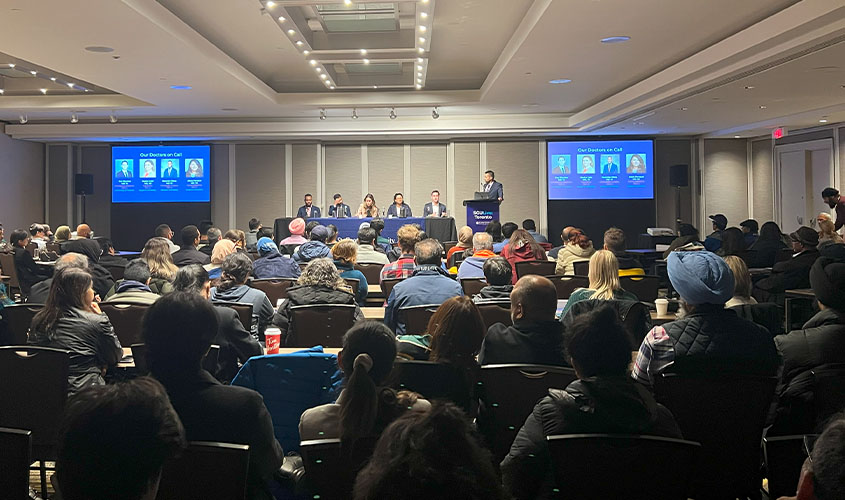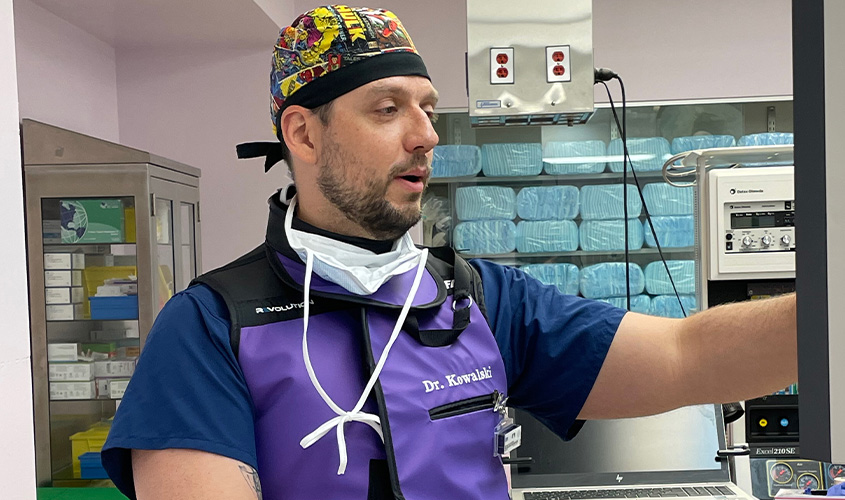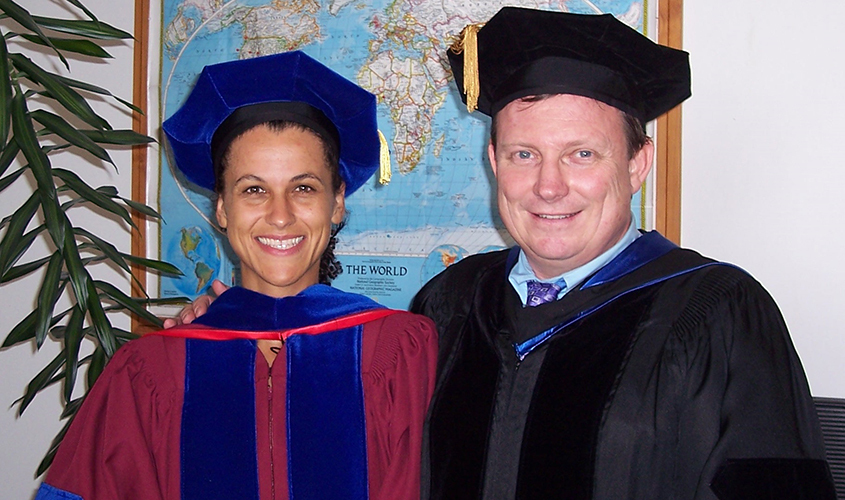Zi Yuan, MD
Zi Yuan, MD ’22, originally from China, is a graduate of St. George’s University (SGU) School of Medicine and a general surgery resident at Maimonides Medical Center in Brooklyn, NY. She is also enrolled in SGU’s Master’s in Public Health program. Dr. Yuan’s desire to pursue medicine stems from her fascination with the workings of the human body. She is also passionate about helping people and positively impacting their lives. Working as a medical professional will now allow her to satisfy those passions, she said.
Dr. Yuan shared her SGU experience and advice for students looking to start their journey to becoming physicians.
SGU: What were your motivations for pursuing a career in medicine?
Dr. Yuan: I enjoy the challenge and complexity of medicine and the fact that it is a constantly evolving and advancing field. Medicine is a fulfilling and rewarding career that will allow me to make a meaningful difference in the world.
SGU: Why did you choose general surgery as a specialty?
Dr. Yuan: I am drawn to the diversity of surgical cases I am exposed to and the ability to make a significant impact on patients’ lives through surgical interventions. As a general surgeon, I will be able to treat a wide range of conditions, from routine procedures to complex operations, and work with patients across the lifespan. I am also attracted to the intensity of surgical practice and the opportunity to work collaboratively with other healthcare professionals to provide the best possible care for my patients. Additionally, I enjoy the technical aspects of surgery and the opportunity to use my hands and mind to solve problems and ultimately make a difference in patients’ lives.
SGU: How did you feel when you learned you matched?
Dr. Yuan: Hearing the news that I was matched into a general surgery residency was an incredible moment that I will never forget. I felt a mix of emotions—excitement, relief, and gratitude. All the hard work, long hours of studying and training, and sacrifices I had made over the years finally paid off. I was thrilled to have the opportunity to pursue my dream of becoming a surgeon and to begin this next chapter in my career. At the same time, I was humbled by the fact that I had been selected from a highly competitive pool of applicants and grateful for the support of my family, friends, and mentors who had helped me along the way. Overall, it was an amazing feeling that I will always cherish.
“The University’s campus was vibrant and welcoming, making it an ideal place for me to call home. The SGU community is a diverse and inclusive one, welcoming students from all over the world.”
SGU: How did you feel about Grenada as a study destination for the basic sciences?
Dr. Yuan: SGU is located on the beautiful island of Grenada, and it offered me a unique cultural experience and tropical environment perfect for my learning and relaxation. I found that the University’s campus was vibrant and welcoming, making it an ideal place for me to call home. The SGU community is a diverse and inclusive one, welcoming students from all over the world.
SGU: What advice would you give to students (especially international students) who are coming to Grenada for the first time to study at SGU?
Dr. Yuan: Studying in a new environment can be overwhelming, so staying organized and managing your time effectively is important. Create a schedule for studying and other activities and stick to it as best as you can. Taking care of your physical and emotional health is equally important, including getting enough sleep, eating well, exercising regularly, and seeking help if you are feeling overwhelmed.
SGU: Now that you’ve completed your education and are on the next step of your journey as a physician, what are your ultimate career aspirations?
Dr. Yuan: I am currently interested in pursuing a fellowship program, but I haven’t decided on a specific area yet. However, I do have an inclination towards surgical oncology. Additionally, I am keen on getting involved in academic pursuits.


